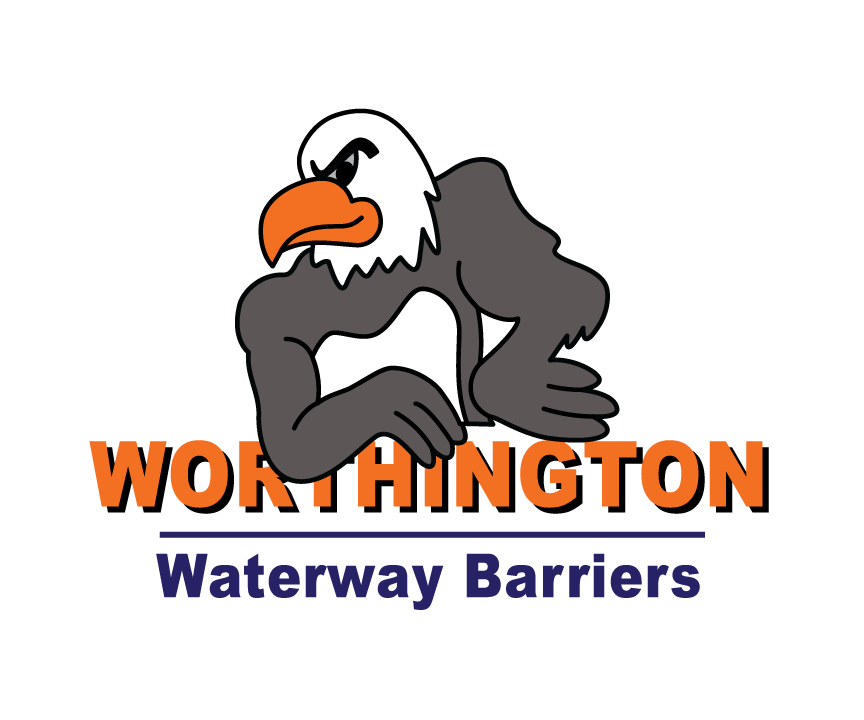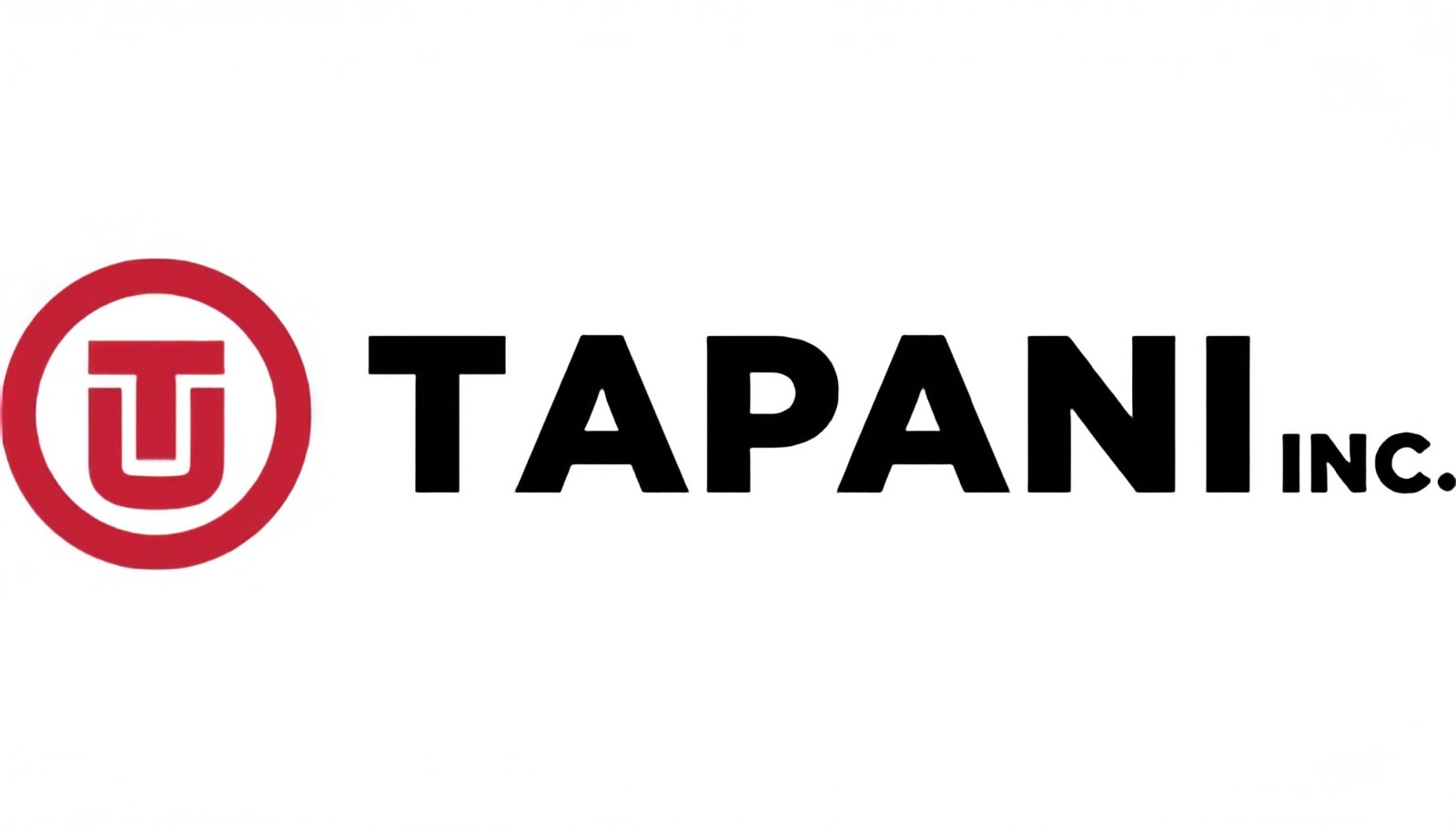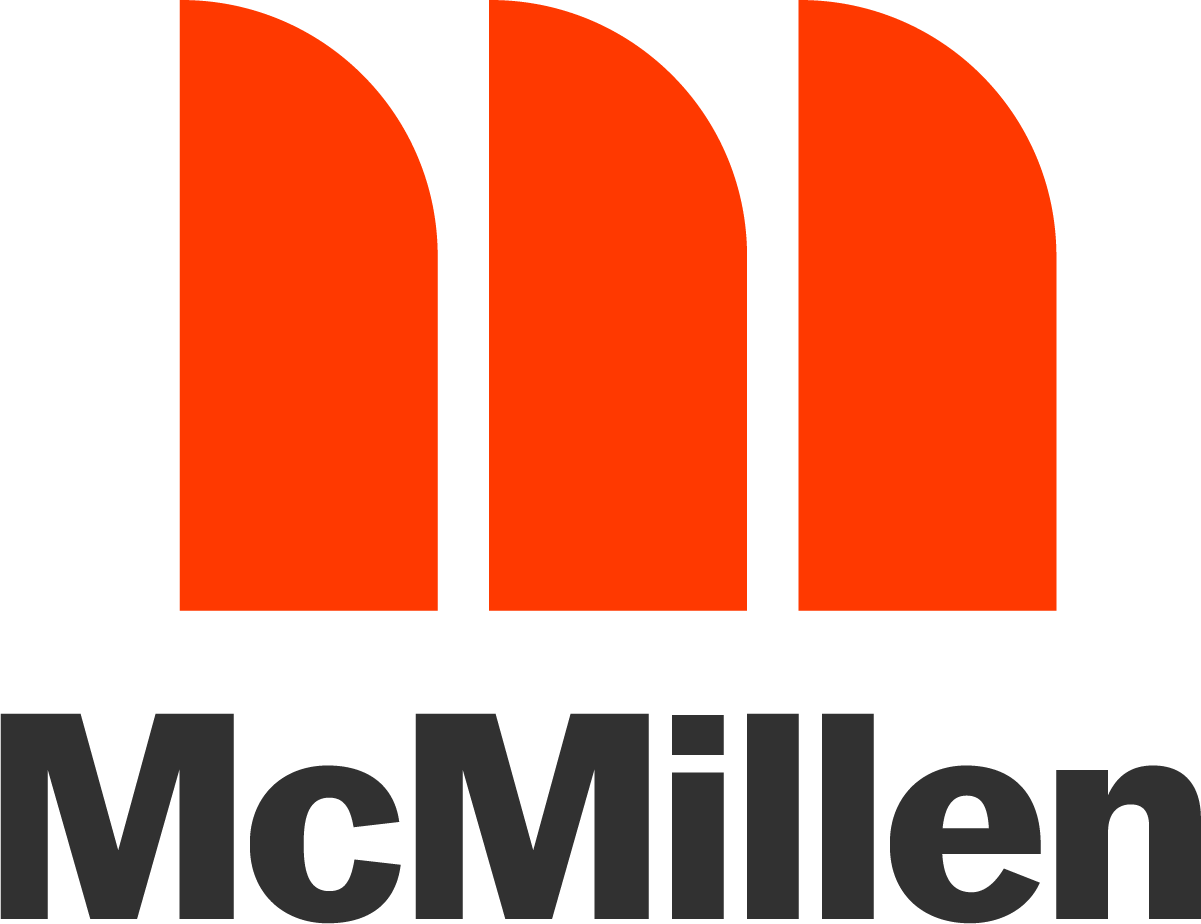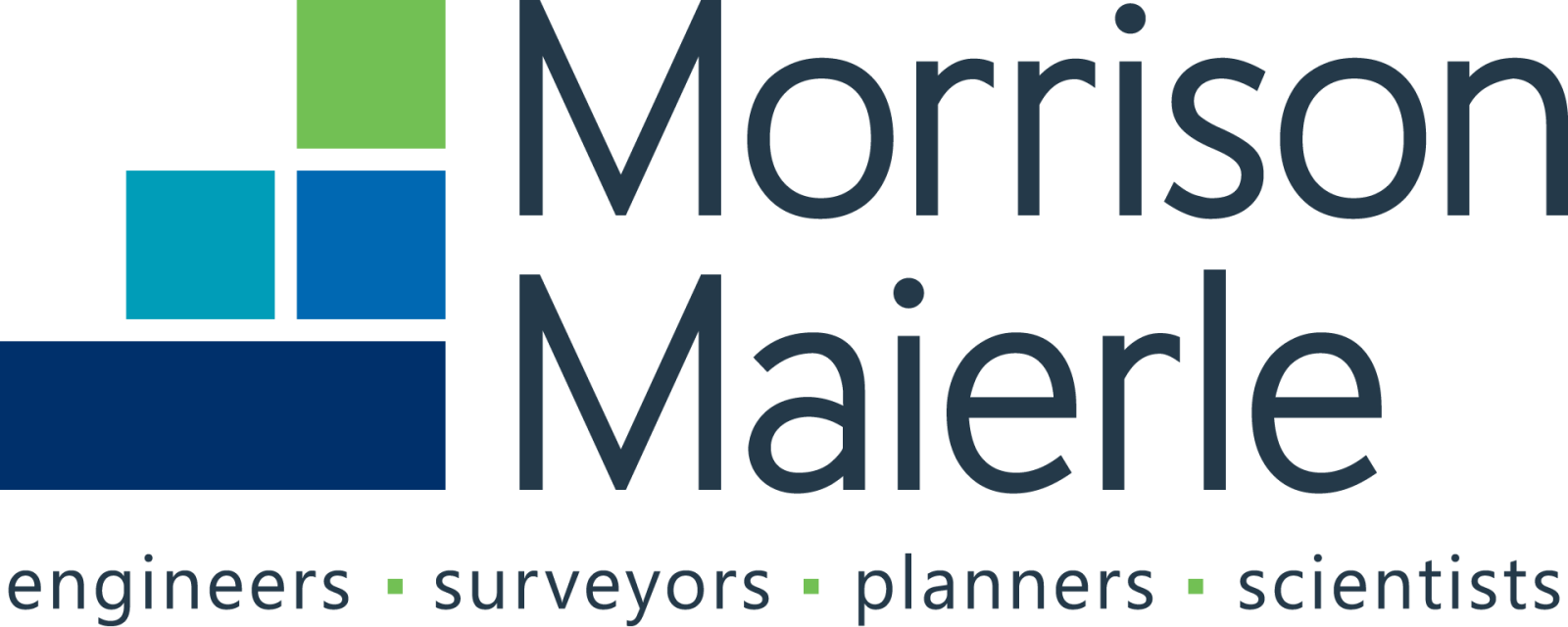NWHA Annual Conference Agenda
Join us for an inspiring lineup of sessions, panels, and networking opportunities at the NWHA Conference. The agenda features thought-provoking keynote speakers, interactive workshops, and discussions on the latest trends and innovations shaping our industry.
Tuesday, February 24th Schedule
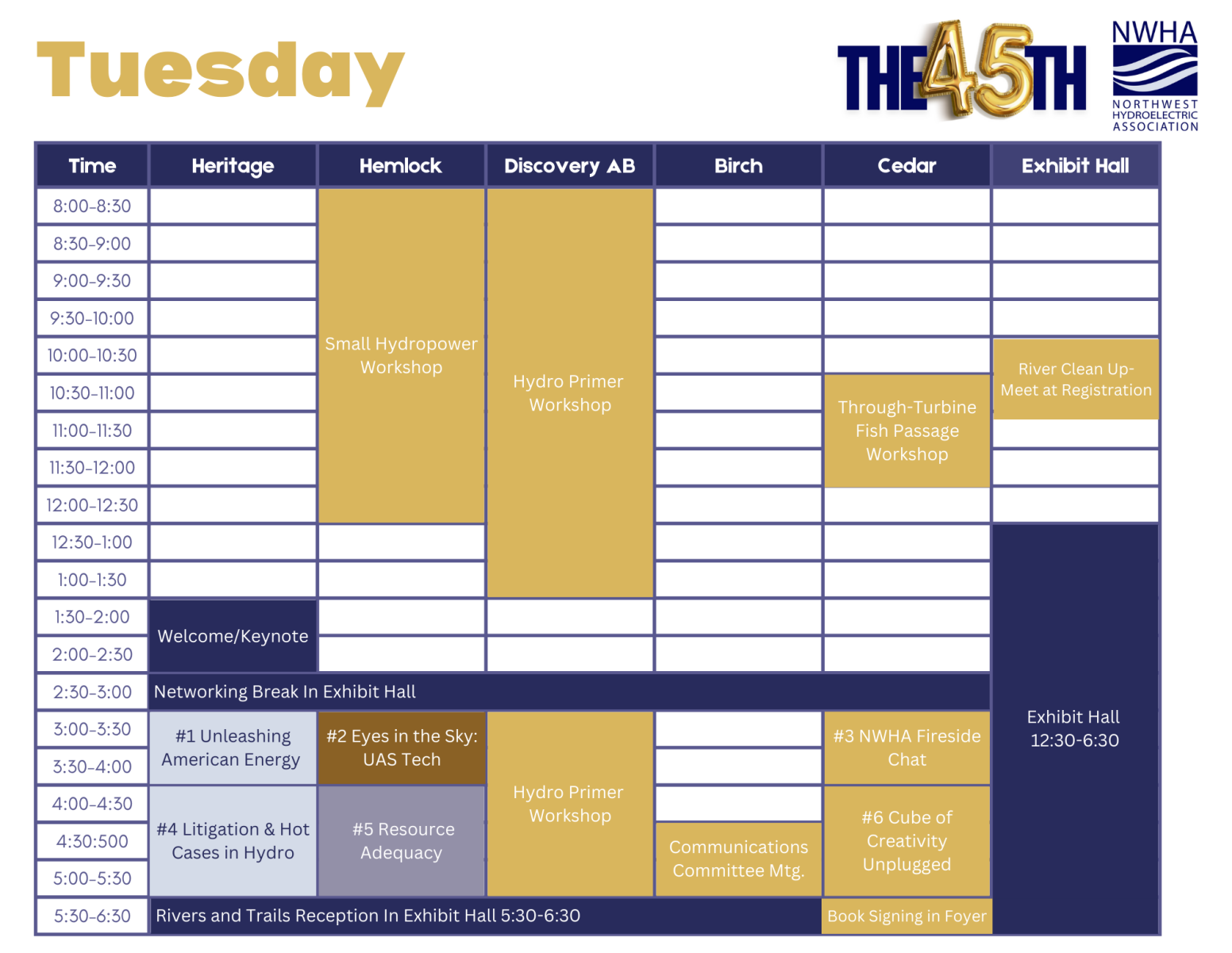
Session Overview:
The Hydropower Primer is a foundational workshop designed for those new to Hydro. This workshop will introduce participants to the core concepts, terminology, and regulatory frameworks that shape hydroelectric generation in the Pacific Northwest.
Participants will gain a clear understanding of:
- The basic science and engineering behind hydroelectric generation
- Key terminology used in the industry
- The role of federal and state agencies in licensing and compliance
- Environmental and community considerations in project development
- The unique characteristics of hydropower
8:00 AM – 8:15 AM | Opening Remarks- Brent Denham
Where are we and why
-
Welcome, logistics, thank sponsors and volunteers, safety – get training from your organization
-
Intro to NWHA
8:15 AM – 9:30 AM | Session 1: Introduction to Hydroelectric Power- Steve Meicke
What are we talking about
-
Key components: dam, reservoir, turbine, generator
-
Basic terminology: head, flow, capacity, generation
-
Types of hydroelectric facilities & Equipment
-
Electrical overview: stator, rotor, exciter, GSU
9:30 AM – 10:15 AM | Session 2: Hydrology – Understanding our fuel- John Chandler
What is our fuel and how do we utilize it
-
Water management, ramp rates, forecasts
10:15 AM – 10:30 AM | Morning Break
10:30 AM – 11:00 AM | Session 3 – Governors & Controls- Roger Clarke-Johnson
How do we control the fuel supply
-
Governors, wicket gates, servo motors, hydraulics, accumulators, blade pitch, brakes
-
How do we synchronize and shut down (video?)
-
Voltage regulation
-
Safety measures, overspeed,
11:00 PM – 11:30 PM | Session 4: Electrical Benefits of Hydro- Casey Harman
What is great about Hydro
-
Energy & Capacity and ancillary services and how are these are managed / controlled.
11:30 PM – 12:00 PM | Lunch Break
Hosted Lunch Provided in session room (Discovery AB)
12:00 PM – 1:00 PM | Session 5: Hydroelectric Licensing & Regulatory- Emily Waters
Who regulates what
- What are the regulations at play (main focus Federal Power Act)
- Who are key agency authorities (main focus on FERC)
- How does oversight differ between federal/non federal dams
- Licensing process stages: pre-application, application, post-licensing
- What licensing looks like in practice (real world example)
1:00 PM – 3:00 PM | Afternoon Break- (Includes Keynote Carve-out & Primer Networking Session) | Session 6: Dam Safety & Security Paul Lennemann
Keeping it safe and in compliance what can go wrong
- What is dam safety and who does what, DSSO etc.
- Hazard classifications, Failure Modes, monitoring
3:30 PM – 4:30 PM | Session 7: License Implementation – Trevor Herritt
What are license measures with examples
- Types of license measures & implementation

9:30 AM - 9:45 AM | Welcome
9:45 AM - 10:30 AM | The Business and Economics of Small Hydro
-Teddy Sorenson - Sorenson Engineering
-Terry Miller - IdaWest
10:30 AM - 10:40 AM | Break
10:40 AM - 11:25 AM | Innovation in thee Small and Micro Hydro Space- -Ian Fox (Continuous Solutions Labs)
- Kyle Perrin (InPipe Energy)
11:30 AM - 12:00 PM | Small Hydro Project Showcase
-Brett Bauer (Canyon Hydro)
12:00 PM - 12:10 PM | Wrap Up and Acknowledgments
Conference attendees are invited to participate in a one-hour volunteer cleanup along the Columbia River in Vancouver, Washington, sponsored by Worthington Products. Volunteers will meet in the lobby 15 minutes prior to the start time (9:45 AM), walk together to the river, assist with shoreline cleanup, and return to the conference area afterward. All cleanup tools and supplies will be provided. Please wear comfortable clothing and closed-toe shoes suitable for outdoor activity.
We are dedicating a portion of the workshop to Francis turbines as we want to ensure the technical portion of this workshop is directly applicable to many of the assets in the Pacific Northwest. The session is designed to include a group discussion to surface common challenges in the Pacific Northwest, focusing on passage for salmonids, Bull Trout and other key migratory species.
To help us tailor the discussion, could you share 1–2 technical questions or "site constraints" you’d like us to address?
Additionally, we would like to reference real-world PNW sites during our design deep-dive. If you have a Francis unit currently being evaluated for a runner replacement, providing the following high-level data would be incredibly helpful:
-
Runner diameter
-
Design head and flow
-
Existing runner type and runner speed
-
Primary species of concern and lifestage for passage
Our goal is for you to come away with a clear technical understanding of how FishSafe designs can integrate into your existing sites to resolve complex fish passage needs while maintaining the existing generation.
Please provide responses to Jessica Penrod, Jessica@natelenergy.com by February 13.
The Cube of Creativity with Andrew Davis
Why adding constraints sparks innovation, action, & builds business
Check out why you do not want to miss this opening keynote
We all need bigger budgets, more resources, more time! You'd love faster licensing renewals, fewer regulatory hurdles, and cutting-edge technology for aging infrastructure. Yeah, we'd all love to see environmental compliance that doesn't take decades, innovation funding that matches other renewables, and respect for hydro's critical role!
We're all stressed out, overworked, and balancing environmental stewardship with keeping the lights on.
Maybe, instead of fighting all these constraints, we need to embrace them.
It turns out teams that embrace constraints fuel growth, evolve fast, and deliver outsized results. The truth is that constraints breed creativity!
In this exhilarating 47-minute session, Andrew Davis will introduce you to the Cube of Creativity, four creative constraints you can add to any project, initiative, or plan to drive better outcomes faster.
You'll learn how one non-profit turned a shutdown into millions of dollars in donations. Andrew will reveal how a small bet with massive limitations resulted in a best-selling book. He'll show you how one business beat the odds by snooping through old SEC filings. You'll even learn how an intern transformed a multi-million dollar business in less than twelve hours. You'll even see how one infrastructure project flew through the approval process, when everyone embraced the constraints.
More importantly, you'll walk away ready to apply intelligent constraints to your hydropower initiatives, limitations that result in more innovation, less burnout, and outsized results.
Are you ready to embrace the constraints?

2:30-3:00 Networking
Location: Lobby
3:00-4:00 Legal and Regulatory Stream- #1 What Does Unleashing American Energy Mean for Hydropower?Location: Heritage
What is the current administration doing to "unleash American energy," and what does that really mean when it comes to hydropower — a renewable resource that's been part of our nation's energy story for generations, yet now faces aging infrastructure, environmental challenges, and shifting energy priorities?
This session takes a closer look at how hydropower fits into the bigger picture of American energy independence and the ongoing energy transition. You'll hear how recent federal and state policy changes are shaping the future of hydropower — and what new opportunities and challenges this "unleashing" of energy could bring to the industry.
Join industry leaders and policy experts for a timely and engaging conversation about the evolving role of separated in America's energy landscape.
Moderator: Daniel Rabon
Speakers: Charles Sensiba, Jeffrey Leahey, Sharon White
Unmanned Aircraft Systems (UAS) are transforming how hydropower operators and resource managers monitor, manage, and protect both natural systems and critical infrastructure. This panel explores the practical use of drone technology to collect and apply high-resolution spatial data for environmental monitoring, habitat management, and regulatory compliance. Panelists will share real-world case studies demonstrating how UAS are being used to map channel migration, support river restoration efforts, monitor wildlife habitat, and detect and treat noxious weeds—improving ecological outcomes, enhancing infrastructure protection, and increasing operational efficiency.
Moderator: Joe Hagengruber
Speakers: Dakota Whitman and Aaron Utz
It seems like every other day we are reading about a new SCOTUS decision that impacts the hydropower industry. This session will explore some of the most significant recent and ongoing legal cases impacting hydropower projects across the country. Experts will examine how litigation is shaping policy interpretations, influencing licensing outcomes, and affecting project timelines and operational flexibility. From nationwide injunctions to NEPA and 401 water quality certifications, attendees will gain insight into key court decisions, emerging legal trends that could impact project development, operation, and compliance.
Moderators: Elizabeth McCormick
Speakers: Merissa Moeller, Kari Vander Stoep, Natalie Reid
Bring your constraints and let's embrace them.
Now you've seen how powerful embracing constraints can be, it's time to put the Cube of Creativity into practice with your real hydropower challenges.
Yes, bring your biggest headaches, your regulatory nightmares, and your resource limitations. Watch LIVE as Andrew works with you to transform actual constraints facing the hydro industry into creative catalysts, using nothing but a dry erase board and the collective expertise in the room.
Got a 10-year licensing process that's killing momentum? Environmental compliance requirements that seem impossible? Aging infrastructure with shrinking budgets? Let's flip these constraints into advantages! Together we'll explore what it takes to turn the limitations that keep you up at night into the innovations that drive our industry forward.
Are you ready to embrace your constraints? Let's get to work.
Host: Andrew Davis
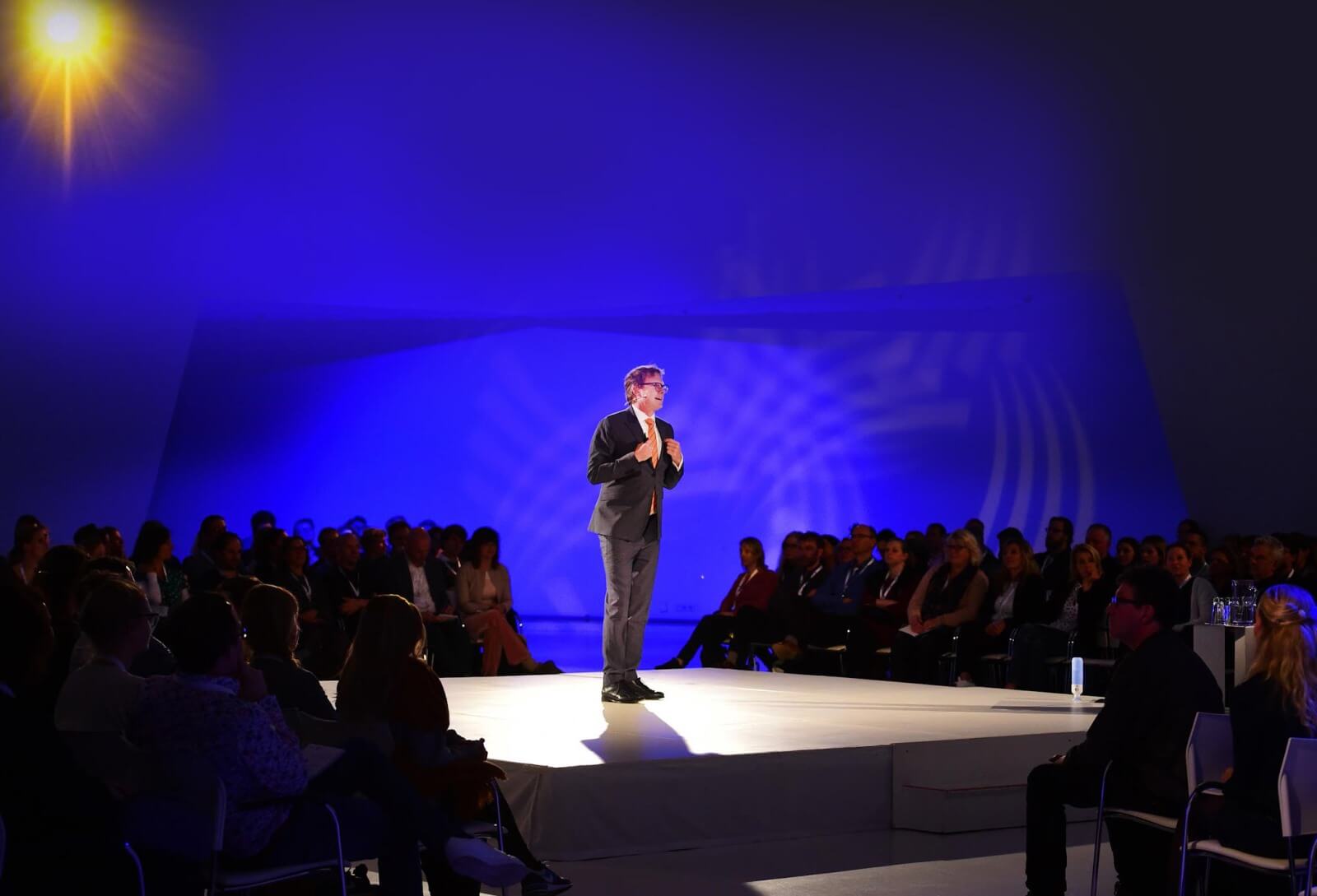


Wednesday, February 25, 2026 Schedule
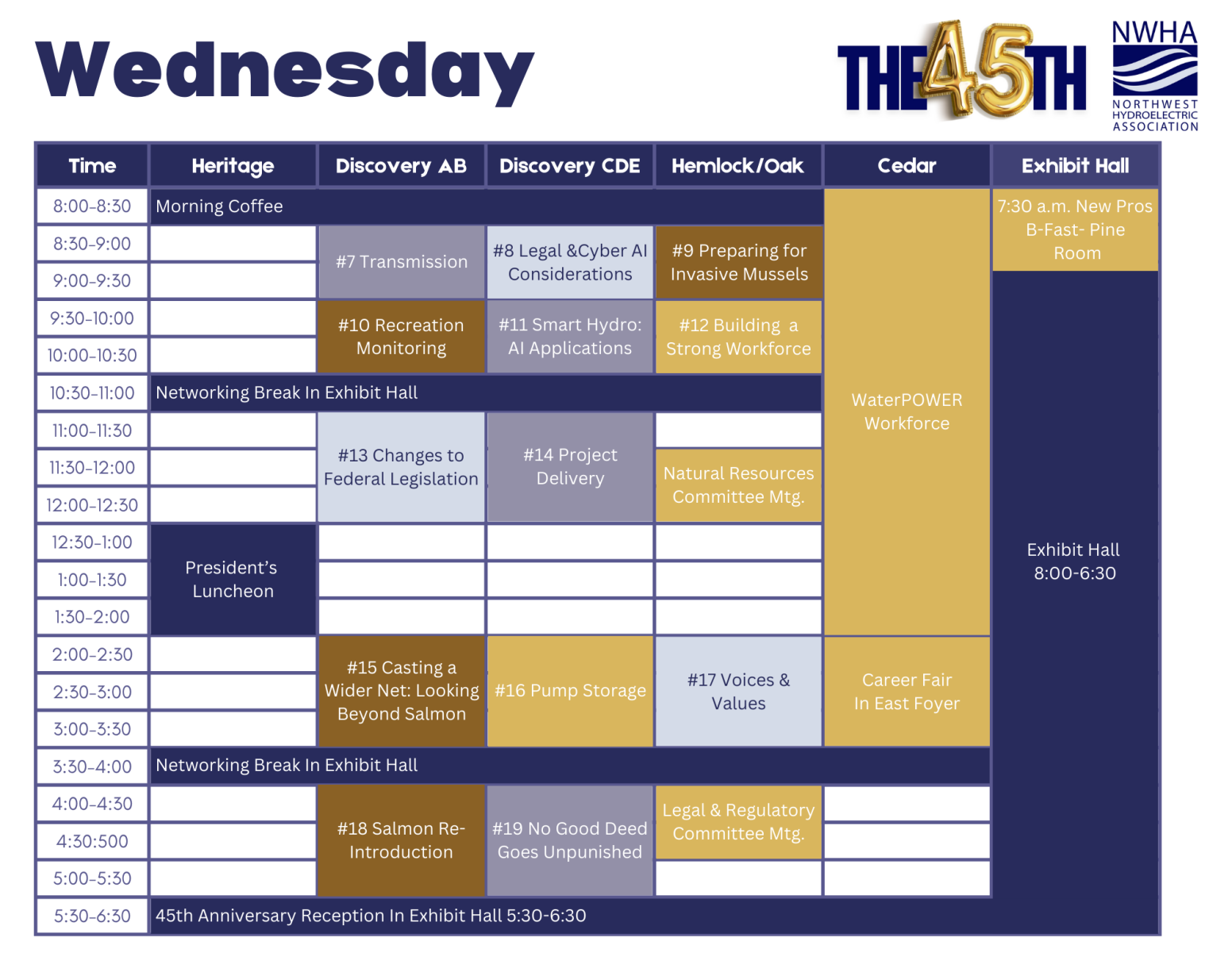
Moderator: Dale Campbell
Speakers: Elizabeth Cook, Andy Wendell, and Richard Maguire
As artificial intelligence (AI) becomes more deeply integrated into energy, infrastructure, and environmental sectors, organizations must navigate a complex landscape of legal, regulatory, and cybersecurity risks. This session will examine the key considerations for deploying AI responsibly and securely—ranging from data privacy and intellectual property concerns to liability, transparency, and compliance with emerging regulations. The speaker will also address the cybersecurity implications of AI systems, including vulnerabilities, threat detection, and the risk of adversarial attacks. Whether you're adopting AI tools for operations, analysis, or communications, this session will provide practical guidance on safeguarding your systems and staying on the right side of the law in an increasingly AI-driven world.
Session Presenter: Alison Grounds
Moderators: Leska Fore
Speakers: Brian Turner, Keith DeHart, and Heidi McMaster
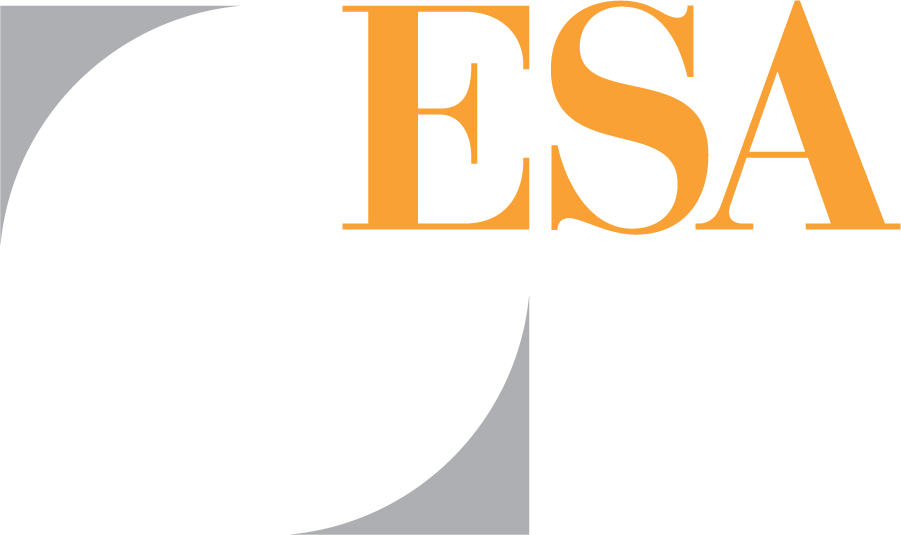
Moderators: Brent Denham
Speakers: Kumar Prabakar, Andrew VanNess, and Stephen 'Joe' Paul
Evaluation of mainstem fish passage and off-channel habitat connectivity in the Martin River, Alaska.
To assess the potential effects of a proposed water diversion project at the Dixon Glacier located near Homer, Alaska, a study was conducted to identify and evaluate how the potential project-induced changes in channel hydraulics may influence the aquatic habitat connectivity in the Martin River that receives water from Dixon Glacier. A high-resolution topobathymetric LiDAR survey was used to develop a 2D hydraulic model of a highly braided 5-mile reach of the Martin River. Model results were integrated with fish passage criteria to evaluate potential minimum instream flows needed to maintain hydrologic connectivity for mainstem fish passage and access to critical off-channel habitats.
Presented by: Mike Gagner, Senior Scientist, Kleinschmidt Associates.
If your company is interested in reserving a table, please reach out to Amanda Neves at amanda@nwhydro.org
Moderator: Francois Vitez
Speaker: Erik Steimle, Lawson Crichton, Mike Manwaring, Kamal Gautam
Moderator: Chad Croft
Speakers: Garth Wyatt, Mac Mikkelsen, Nic Dehlinger
Thursday, February 26th Schedule
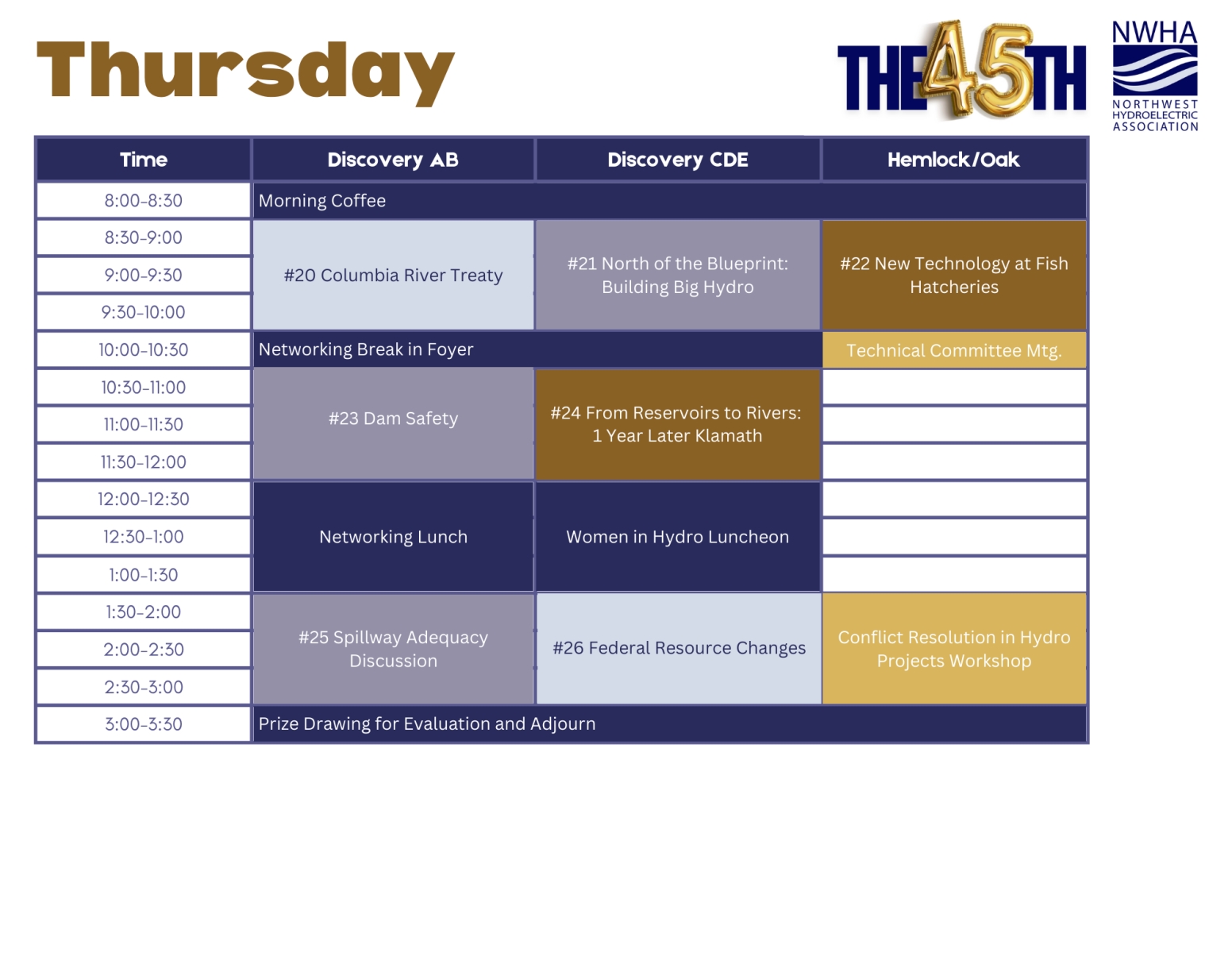
Moderator: K.C. Mehaffey
Speakers: Kyle Murphy, Scott Simms, and Maura Brueger
Moderator: Adam Pawlikewich
Hydropower stakeholders are increasingly investing in fish hatchery innovations to meet evolving environmental, operational, and regulatory demands. This session highlights emerging technologies that are reshaping hatchery practices—from advanced water filtration and temperature control systems to automated feeding, data-driven monitoring, and genetic management tools. Attendees will gain insights into how these technologies can improve fish health, enhance production efficiency, and support long-term sustainability goals.
Speakers: Riley Brown, John Rohrback, Bryant Charlo, Catherine Willard
This session is proudly sponsored by:
Moderators: Josh Gile
Speakers: Woodrow Fields, Jason Needham, and Brent Sullivan
Moderators: Dan Chase
Speakers: Scott Wright, Dave Coffman, Stephanie Quinn- Davidson, and Mort McMillen
Shifting priorities, staffing changes, and budget constraints at federal agencies are creating ripple effects across the hydropower licensing and compliance landscape. As federal agencies navigate evolving missions and resource limitations, their capacity to engage in timely and consistent regulatory processes is being tested.
This session will examine how changes in federal resources—human, financial, and institutional—are influencing hydropower project timelines, consultation dynamics, and outcomes. Panelists will share on-the-ground perspectives from industry, agency, and legal viewpoints, exploring both the challenges and opportunities that arise when federal partners are stretched thin or reprioritizing. Attendees will gain practical insight into how the hydropower industry can adapt, collaborate, and advocate for effective engagement in an era of constrained federal capacity.
Moderator: Jeff Leahey
Speakers: Matt Cutlip, Steve Hocking, and Shari Anderson

